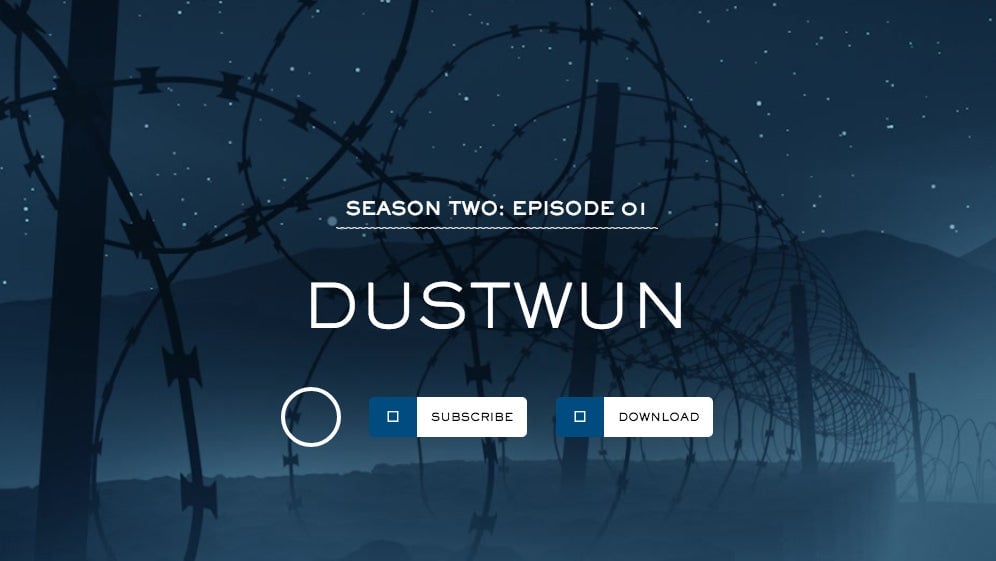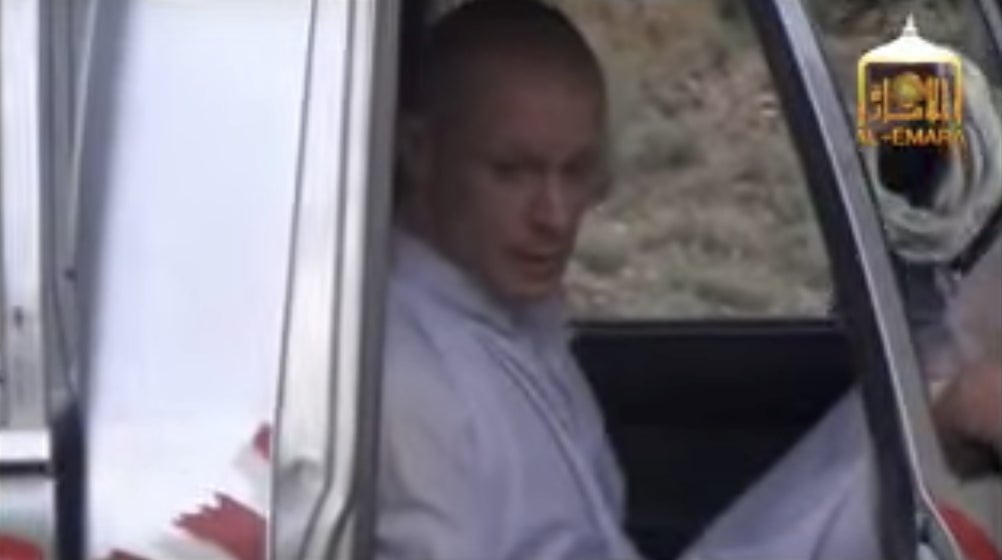Recap of “Serial” season two, episode one: Welcome back, old friend—and hello, Bowe Bergdahl
Season two of Serial begins with several familiar references. Yes, there’s an ad for MailChimp—the exact same one that became a cult hit during the first season. There are the piano chords that form the podcast’s theme song, though it has been remixed for the new season with more horns and, at one point later in the episode, an electric keyboard. There is even a brief cameo by Donald Trump because no piece of American media in 2015 is complete without him.


Season two of Serial begins with several familiar references. Yes, there’s an ad for MailChimp—the exact same one that became a cult hit during the first season. There are the piano chords that form the podcast’s theme song, though it has been remixed for the new season with more horns and, at one point later in the episode, an electric keyboard. There is even a brief cameo by Donald Trump because no piece of American media in 2015 is complete without him.
And then there’s Sarah Koenig, the host, whose straightforward, expositive, yet always slightly skeptical narration set the tone of season one, which became the most popular podcast of all time and prompted a renaissance in digital audio. She begins the second season with a lengthy description of a video of Taliban fighters in Afghanistan releasing US Army soldier Bowe Bergdahl, whom they held captive for nearly five years, back into American hands.
“In the backseat of the truck, the door is open,” Koenig says, easing back into that much-parodied, public-radio voice. “A bare-headed figure is seated with his knees up on the seat in front of him. The camera closes in, and you see this pale, young man, and that’s Bergdahl. His head is shaved. He looks sort of like a cult leader from a ’70s movie.”

Where season one probed an obscure murder from 1999, season two finds its drama in a well-known and far more recent tale: Bergdahl went missing in June 2009 while serving in Afghanistan, was taken prisoner by the Taliban, and returned in May 2014 in exchange for five people held by the US in Guantanamo Bay. The circumstances of his capture have always been murky, and in June 2015, Bergdahl was charged with desertion, which can be punishable by death.
The mystery of this season, then, is what was Bergdahl thinking? And the big reveal is that Serial has him explaining exactly that, in his first public comments since being released and with those charges by the US Army still hanging over his head: about 25 hours of phone interviews with Bergdahl conducted by Mark Boal, co-founder of Page One, a production company that is working on a movie about the same story. They are collaborators on this season.
In the first episode, Boal’s interviews feel off compared to Koenig’s conversations with convicted murderer Adnan Syed last season, though both have the crackling authenticity of audio recorded over the phone. Boal’s tone is decidedly different and, at times, irritating; he talks over Bergdahl more than once. But he’s the one who got Bergdahl to talk, which is what matters. It will be interesting to see if Boal is portrayed more like a co-host or another character.
The existence of these tapes threatens to deflate the mystery right away. We learn quickly what Bergdahl was thinking, or says he was thinking, when he walked away from the Mest-Malak outpost in the Paktika province of eastern Afghanistan. Bergdahl says the leadership of his unit was dangerously incompetent, and he needed to inform their superiors. When he walked away from the outpost, he says he was headed for the unit’s base about 20 miles away.
“I was trying to find a solution to the problem at hand,” Bergdahl tells Boal, as though walking unarmed into the desert was his only option.
There are more details in the episode about how Bergdahl was captured, and the accompanying website has a very good map of the geography between the outpost and base. Definitely check that out. But this episode is mostly just the set-up for what’s to come, including—as we learn in a funny teaser at the end—an interview with Taliban soldiers.
Koenig seems to acknowledge that the fundamental mystery of what Bergdahl was thinking is not enough to carry this season the way season one was carried by the simple question of Syed’s guilt or innocence. Of course, there is more to this story than what Bergdahl claims, and it will, we hope, unfold over the coming installments. (Season one had 12 episodes.) But you can tell Koenig is trying to establish a bigger drama when she launches into this metaphor:
At some point, after I’d been reporting out all these various threads of Bowe’s story, interviewing lots of people at length about Bowe and about what he did and the consequences of what he did, this children’s book I used to read to my kids popped into my head. It’s called Zoom. There are no words, it’s just pictures. And it starts with these pointy red shapes; and then next page you realize those shapes are a rooster’s comb; and then next page, you zoom out, you see the rooster is standing on a fence with two little kids watching him; next page, zoom out again, they’re in a farmhouse; and then, zoom further, you realize that all of it—the rooster, the kids, the farmhouse—are toys being played with by another child, and that that whole scene is actually an ad in a magazine, and the magazine is in the lap of someone napping on deck chair; and so on. Out and out it zooms, the aperture of the thing getting wider and wider until the original image is so far away it’s unseeable. That’s what the story of Bowe Bergdahl is like. This one idiosyncratic guy makes a radical decision at the age of 23 to walk away into Afghanistan, and the consequences of that decision, they spin out wider and wider. And at every turn you’re surprised, the picture changes. To get the full picture, you need to go very, very small into one person’s life and also very, very big into the war in Afghanistan.
It’s an eloquent explanation of the nature of storytelling and, more specifically, what Serial is so good at. It’s also the most Serial-y moment in the podcast’s history, captivating—yet on the verge of self-parody.
Certainly the success of season one has put a lot of pressure on season two. (As a sign of that pressure, the show’s website was briefly overwhelmed when the episode was released at 6am ET, as loads of podcasting apps presumably all tried to download the file at once.) It’s only fair to judge the new season on its own merits.
Since the first one ended a year ago, podcasting as a medium has seemed to grow up, and Serial is no longer a singular example of high-quality, episodic, audio storytelling. Serial itself has grown up, too, with more employees, including a community manager, plus a slick new website and new sponsors—Squarespace and Audible, veterans of podcast advertising, have joined MailChimp this season, likely for prices well above the rates last time around. Oh, and the mild-mannered Koenig is cursing now! She says “shit” once and promises Boal’s recordings are coarse, too.
We’ll see where this is going after a few more episodes of exposition. For now, it’s not yet really about Bergdahl. It’s about Serial and the real mystery here, which is whether the podcast can do it again.